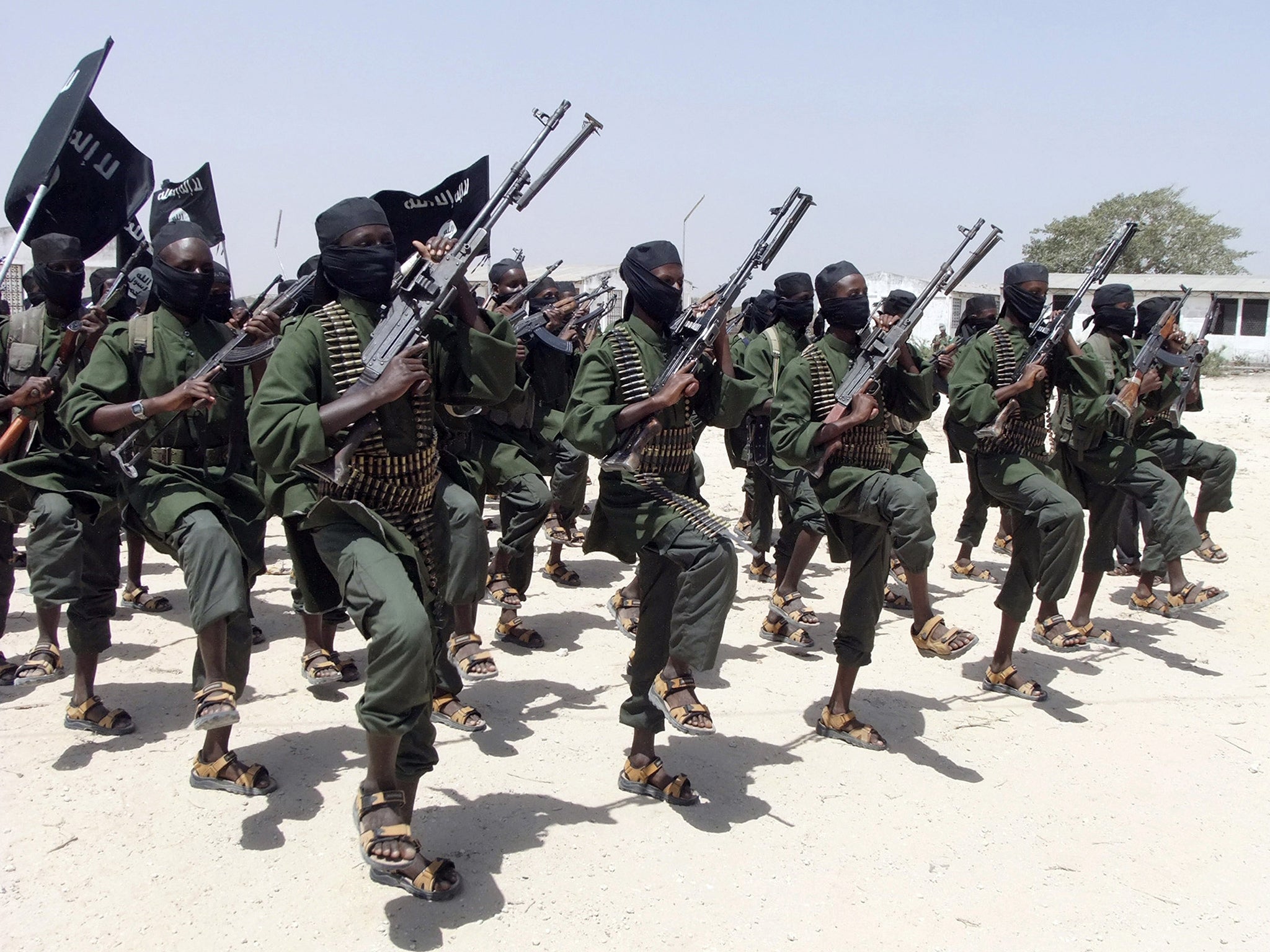Possible death of brutal Al-Shabaab leader in US missile attack may see group splinter into bigger terror threat, say experts
Ahmed Abdi Godane ruled with an iron fist and has no obvious successors

Your support helps us to tell the story
From reproductive rights to climate change to Big Tech, The Independent is on the ground when the story is developing. Whether it's investigating the financials of Elon Musk's pro-Trump PAC or producing our latest documentary, 'The A Word', which shines a light on the American women fighting for reproductive rights, we know how important it is to parse out the facts from the messaging.
At such a critical moment in US history, we need reporters on the ground. Your donation allows us to keep sending journalists to speak to both sides of the story.
The Independent is trusted by Americans across the entire political spectrum. And unlike many other quality news outlets, we choose not to lock Americans out of our reporting and analysis with paywalls. We believe quality journalism should be available to everyone, paid for by those who can afford it.
Your support makes all the difference.A hail of US missiles aimed at the leader of Somalia’s al-Shabaab militants may have left a gaping hole in the group’s leadership, and potentially the biggest challenge to its unity since it emerged as a fighting force eight years ago.
Washington said it was still checking to see whether its laser-guided attack on Monday killed Ahmed Abdi Godane, who aligned al-Shabaab with al-Qa’ida and authorised the group’s deadly raid on a Nairobi shopping mall last year.
A US government source said that it is looking into a tweet from what it believed was a legitimate al-Shabaab account confirming the death.
If confirmed, experts say there is a real chance the death of the man who ruled the group with an iron fist and left no obvious successors would trigger infighting or the formation of smaller, potentially more dangerous splinter movements.
“If... he is in fact dead, it is a game changer in many ways for al-Shabaab,” said Abdi Aynte, director of the Heritage Institute for Policy Studies in Mogadishu, the Somali capital.
“What is likely to happen is a struggle for power,” he said. Fragmentation was also possible in the absence of a leader with Godane’s experience and ruthless approach to dissent.
In 2008, Godane’s predecessor, Aden Hashi Ayro, was killed in a similar US raid.
“This is a strategic ideology which cannot be destroyed by the elimination of an individual,” said Hussein Biihi, an elder in the Lower Shabelle region south of Mogadishu, where al-Shabaab remain a potent force despite a military offensive by African and Somali troops to recapture towns and territory.
But a new leader may not emerge so swiftly this time.
That is partly because Godane scrapped the shura council which picked him, seeing it as an apparent threat. Using tactics more akin to an African warlord, he also killed rivals or dissenting voices.
“There is not a clear, designated crown prince inside al-Shabaab,” said Stig Jarle Hansen, a Norwegian expert who has written a book on African jihadists, saying Godane’s “solo game” has made the group’s task of finding a new leader more difficult.
“If [Godane] is dead, that is serious for al-Shabaab, partly because of his leadership structure,” he said.
Reuters
Join our commenting forum
Join thought-provoking conversations, follow other Independent readers and see their replies
Comments